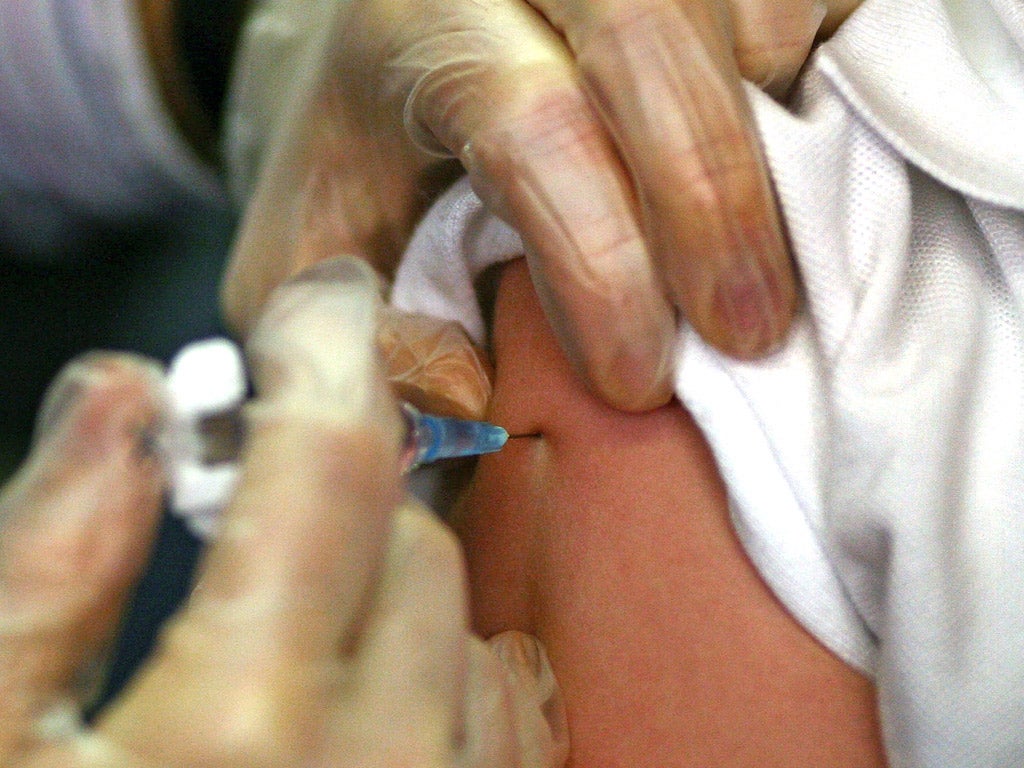Swansea measles outbreak: Confirmed cases rise to nearly 700

Your support helps us to tell the story
From reproductive rights to climate change to Big Tech, The Independent is on the ground when the story is developing. Whether it's investigating the financials of Elon Musk's pro-Trump PAC or producing our latest documentary, 'The A Word', which shines a light on the American women fighting for reproductive rights, we know how important it is to parse out the facts from the messaging.
At such a critical moment in US history, we need reporters on the ground. Your donation allows us to keep sending journalists to speak to both sides of the story.
The Independent is trusted by Americans across the entire political spectrum. And unlike many other quality news outlets, we choose not to lock Americans out of our reporting and analysis with paywalls. We believe quality journalism should be available to everyone, paid for by those who can afford it.
Your support makes all the difference.A big increase in measles cases has prompted health bosses to renew a plea for unvaccinated people to get their MMR jabs immediately.
Another 73 cases have now been reported - bringing the total number of those infected in the Swansea area to 693.
Public Health Wales is continuing to urge parents of unvaccinated children across Wales to act immediately to ensure they are protected against the potentially fatal disease.
Further drop-in vaccination clinics are planned this week following emergency clinics held last weekend.
Although more than 2,600 MMR vaccines were received in the Swansea area last week, doctors warn this is not enough to bring the outbreak under control.
Marion Lyons, director health protection at PHW, said at least 6,000 children remain unvaccinated in the south west Wales county.
"With measles cases at almost 700, with 73 of those reported in the last two days alone, we remain extremely concerned that this outbreak is showing no signs of going away," she added.
"We are delighted to see parents starting to arrange vaccination for their children but the numbers simply aren't high enough to bring the outbreak under control when 6,000 children remain at risk from measles in the Swansea area alone."
Typical symptoms of measles include fever, cough, conjunctivitis and a rash. Complications are quite common even in healthy people, and about 20% of reported measles cases experience one or more complications.
These can include ear infections, vomiting and diarrhoea, pneumonia, meningitis and serious eye disorders.
Before the introduction of the MMR jab in 1988, about half a million children caught measles each year in the UK. Approximately 100 of those died.
However, concerns over the jab's safety were raised in the late 1990s when a surgeon published a since discredited paper suggesting MMR was linked to an increased risk of autism.
While the latest epidemic is based in Swansea, cases have continued to be reported across Wales.
Most are in the Abertawe Bro Morgannwg health region, which also includes Neath, Port Talbot and Bridgend.
Cases have also been found in Powys and in the Hywel Dda Health Board area - which covers Carmarthenshire, Ceredigion and Pembrokeshire.
With not enough "herd immunity", health officials fear it is "just a matter of time" before a child is left with serious and permanent complications.
Dr Lyons said: "We are not just talking about small children who would be due for MMR vaccinations in the near future anyway - we urgently need to see more older children who have missed vaccinations in the past coming forward.
"We have particular concerns about unvaccinated children in the 10 to 14 years age group. It is never too late to catch up on missed MMR doses."
In the meantime, health bosses are preparing for the latest round of emergency vaccination sessions.
They will be held between 10am and 4pm at Swansea's Morriston and Singleton hospitals, as well as The Princess of Wales Hospital, Bridgend and the Neath Port Talbot Hospital.
More information about the sessions can be found online at http://www.publichealthwales.org.
PA
Join our commenting forum
Join thought-provoking conversations, follow other Independent readers and see their replies
Comments